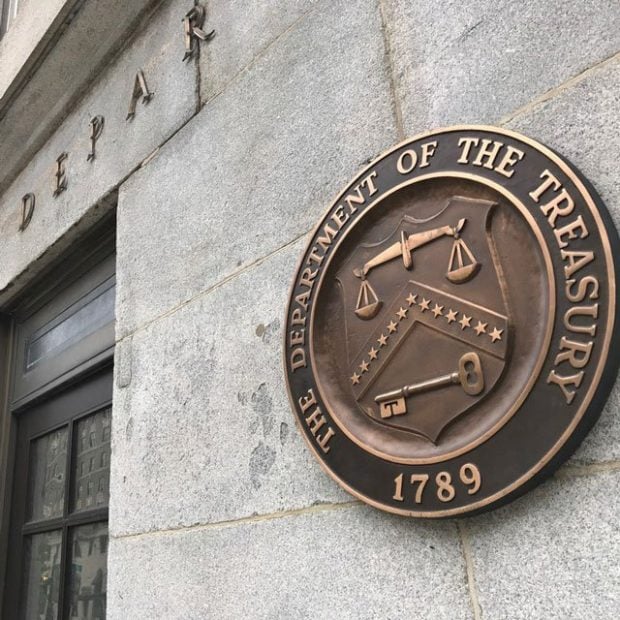 Department of Treasury, Washington, D.C. Credit/Adobe Stock
Department of Treasury, Washington, D.C. Credit/Adobe Stock
The credit union industry appears to be supporting the use cases of artificial intelligence in a responsible way, and in a way that does not involve regulators more than it needs to.
Earlier this summer, the U.S. Department of the Treasury released a request for information on the uses, opportunities and risks of AI in the financial services space. On Monday, officials with America's Credit Unions filed a 12-page letter with the Department of Treasury supporting AI with an approach that allows credit unions to grow and innovate while using it in a responsible way.
Recommended For You
America's Credit Unions Director of Innovation and Technology Andrew Morris wrote in support of a non-regulatory methodology for credit unions and other financial institutions to use AI.
"America's Credit Unions supports a financial marketplace that allows credit unions to grow and innovate through the responsible use of AI," Morris wrote. "As not-for-profit cooperatives, credit unions use AI to meet the needs of their members, such as by improving access to credit, preventing fraud, enhancing risk management, and improving customer service operations. AI can also grant a competitive edge to credit unions in a marketplace dominated by larger institutions. While AI holds promise for credit unions and the communities they serve, sustained innovation depends on a commitment from regulators to facilitate and encourage experimentation. To achieve this goal, policymakers should favor the application of principles-based frameworks for risk management while avoiding needlessly granular examination procedures designed to interrogate a single type of technology."
Morris said credit unions are already regulated in how AI can be used with "consumer protections, anti-discrimination laws, and prudential safeguards continue to apply and remain tech-neutral. Accordingly, regulatory priorities should be oriented towards refining supervisory understanding rather than seeking new, one-size-fits all rules that would soon grow outdated in the quickly developing field of AI. With greater understanding of how this technology can benefit consumers, enhance business functions, and support healthy competition, regulators may find it easier to offer signals of support rather than skepticism."
According to America's Credit Unions, Morris detailed several uses and opportunities of AI in his letter, stating that credit unions' narrow use of AI "often falls into three buckets: underwriting support; risk management and financial crime; and customer service improvements."
Morris wrote, "Credit unions are committed to using AI safely, securely, and with the goal of helping their members meet their financial needs. Regulators should recognize the tech-neutral applicability of existing laws with the aim of signaling acceptance — rather than skepticism — of responsible AI innovation."
© 2025 ALM Global, LLC, All Rights Reserved. Request academic re-use from www.copyright.com. All other uses, submit a request to [email protected]. For more information visit Asset & Logo Licensing.








